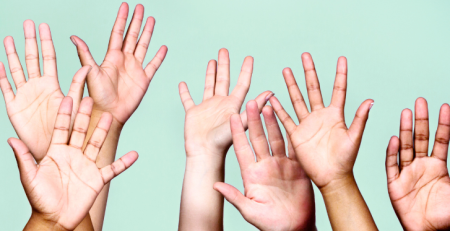Providing Equal and Appropriate Mental Health Care to Marginalized Groups
National Minority Mental Health Awareness Month is observed each July, bringing awareness to the unique struggles that racial and ethnic minority communities face regarding mental illness in the United States. The COVID-19 pandemic negatively affected many people’s mental health and created new barriers for people who experience mental illness and substance use disorders. During the pandemic, 4 in 10 adults in the U.S. reported anxiety or depressive disorder symptoms, a sharp rise compared to previous years. While this has made it harder for everyone to access mental health and substance use treatment services, it has been particularly problematic for racialized and ethnic minority groups.
According to the U.S Department of Health and Human Services, Office of Minority Health (OMH). Marginalized groups often suffer more from poor mental health outcomes due to the cultural stigma and lack of access to mental health care services,
Mental health conditions do not discriminate based on race, color, gender, or identity. Anyone can experience the challenges of mental illness regardless of their background. However, background and identity can make access to mental health treatment much more difficult. (The National Alliance on Mental Illness) In 2008, the Bebe Moore Campbell National Minority Mental Health Awareness Month was established to address this crisis.
As a leading provider of mental health assessments and tools for psychologists in education, public safety, talent development, and clinical settings, we understand our unique position in ensuring our tools and assessments remain equitable, inclusive, and culturally sensitive in all applications. Part of our role in this community is to ensure providers are aware of innate systemic bias and support our users in understanding these biases. Therefore, we have compiled a brief collection of information and resources on this topic below.
Access to mental health care for traditionally marginalized groups is limited
In an article titled “Erasing Mental Health Stigma in the Black Community,” author Brakeyshia R. Samms outlines her personal experiences living with mental illness. She states, “As a Black woman living with mental illness, I’ve been told plenty of times by other Black people that I should not talk about my experience managing my mental health condition” Further, “…the pervasive stigma surrounding mental illness in the Black community often makes me feel like my life is embarrassing and that I must hide a major part of myself. Sometimes, this shame can be too much to bear…I did some research, and as it turns out, I am certainly not the only Black person experiencing mental illness. Among the nearly 5 million Black people living with a mental illness, nearly a quarter reported having a serious condition, including schizophrenia, bipolar disorder, and depression, among many others.”
The data surrounding mental and behavioral health in the African American community paints a stark picture. In 2019, suicide was the second leading cause of death for African Americans, ages 15 to 24. Further, knowing that poverty level affects mental health status, Black or African Americans living below the poverty level, as compared to those over twice the poverty level, are twice as likely to report serious psychological distress. According to the American Psychological Association, studies show African Americans are just as much at risk for mental illness as their white counterparts yet receive substantially less treatment. Analysis of U.S. Census Bureau data shows that in 2005, African Americans were 7.3 times a likely to live in high-poverty neighborhoods with limited to no access to mental health services (Denton & Anderson, 2005).
In the Asian American population, it has been reported that this group is 60 percent less likely to have received mental health treatment than non-Hispanic whites.
One University of Maryland study examined the mental health needs of young Asian American adults. Researchers learned that these individuals faced various pressures and problems that discouraged them from seeking help for mental health concerns. Some said they felt tremendous pressure to be academically or professionally successful. To stay focused, they ignored or denied symptoms. Others cited cultural concerns. They explained that mental health was a taboo topic in their communities.
In the American Hispanic and Latinx population, it has been reported that this group is 50 percent less likely to have received mental health treatment than non-Hispanic whites. According to the National Alliance on Mental Illness, “…Hispanic/Latinx communities show similar vulnerability to mental illness as the general population, but they face disparities in access to and quality of treatment. More than half of Hispanic young adults ages 18-25 with serious mental illness may not receive treatment. This inequality puts these communities at a higher risk for more severe and persistent mental health conditions because, without treatment, mental health conditions often worsen.” In fact, approximately 34% of Hispanic/Latinx adults with mental illness receive treatment each year compared to the U.S. average of 45%.
How to provide culturally competent care
For mental health providers working with traditionally marginalized populations, exploring cultural identity may offer vital information to tailor mental health treatment. Cultural humility is necessary to provide quality care. According to the National Alliance on Mental Illness, this refers to the ability to recognize that culture plays a significant role in a person’s health and well-being and may sometimes affect the provider’s ability to serve their patient’s needs best.
In an article written for Medical News Today, Dr. Wooksoo Kim, Associate Professor at the University of Buffalo in the School of Social Work states, “…at the systems level…a simple yet reliable mental health screening routine in the primary care setting would promote greater recognition of mental health problems and increase service use among minority populations. At the same time, the cultural competence of healthcare professionals can be improved by their willingness to learn. Cultural competence is a continuous process rather than a single goal.” She continues, “…we need to focus on developing culturally responsive ways for each minority group to help them. It should be a two-way street: We need to focus on educating the minority communities, decreasing cultural stigmas, and providing a resource list.”
The American Psychological Association has made the following resources available in addressing the disparity of mental health service access and competency in the areas of race, ethnicity, and religion that we encourage you to read to further understand this complex and nuanced area.
Harnessing Psychology to Combat Racism: Adopting a Uniform Definition and Understanding
APA GUIDELINES on Race and Ethnicity in Psychology
Multicultural Guidelines: An Ecological Approach to Context, Identity, and Intersectionality
To learn more about National Minority Mental Health Awareness Month, we encourage you to visit the National Alliance on Mental Illness website.










